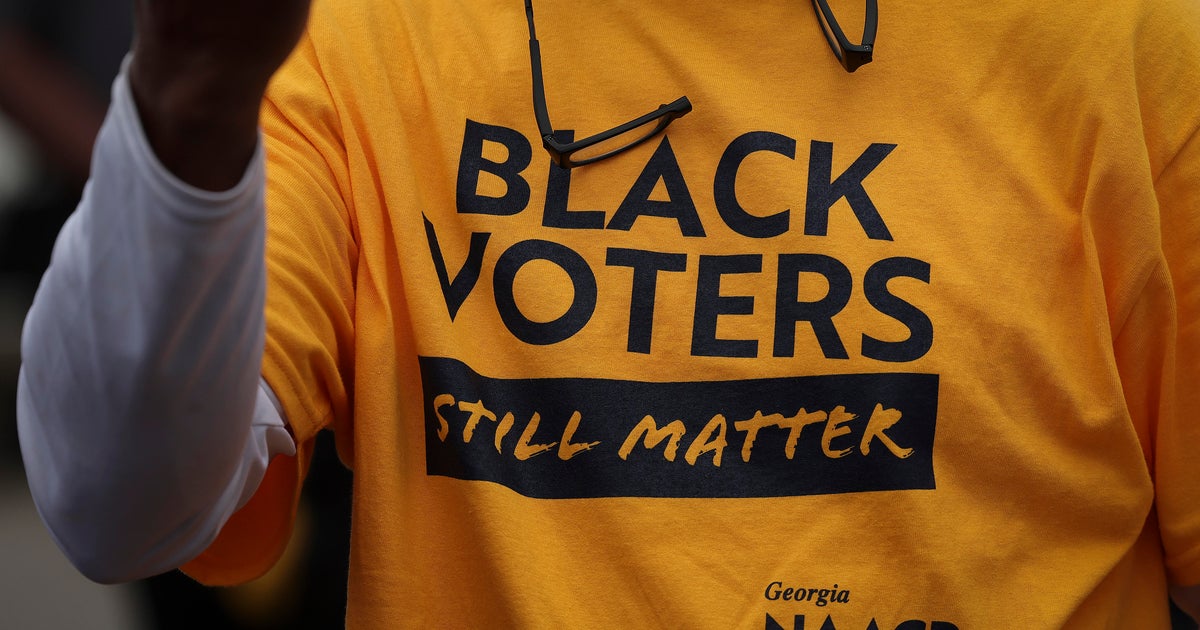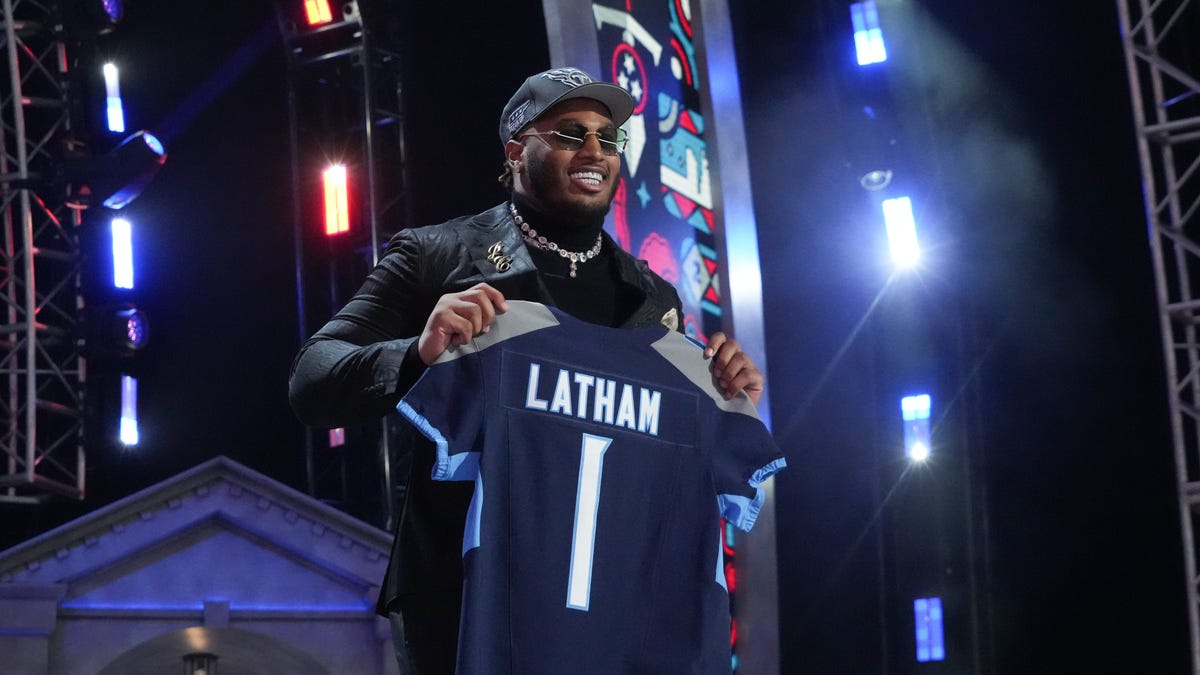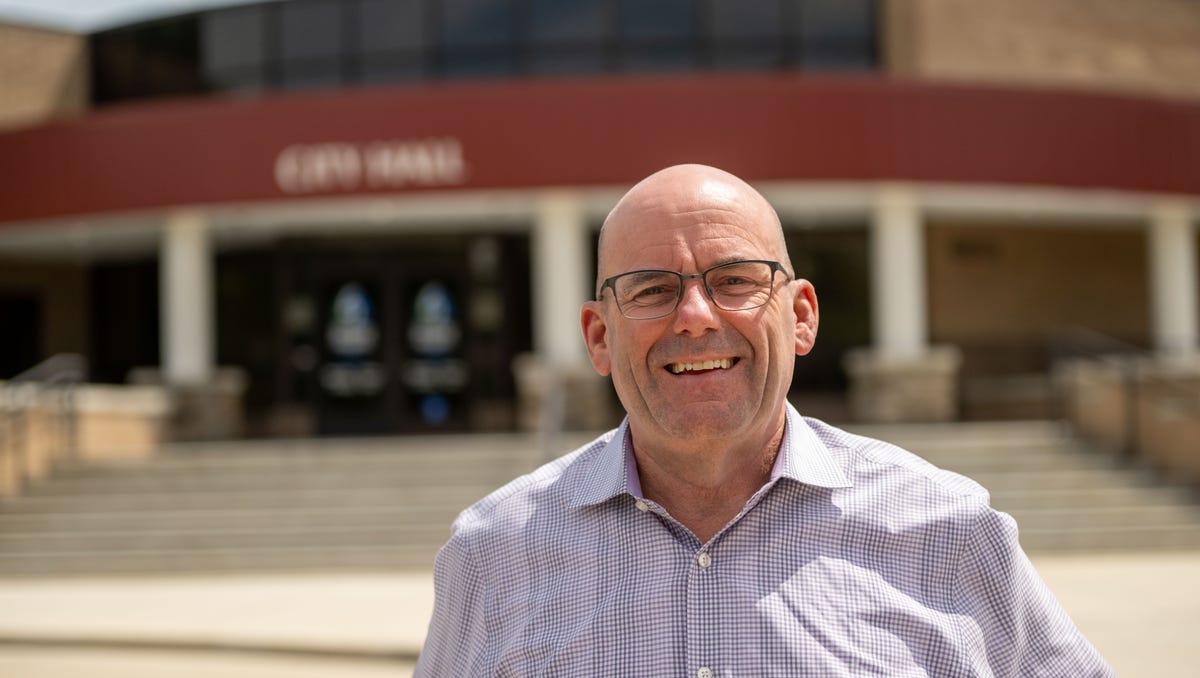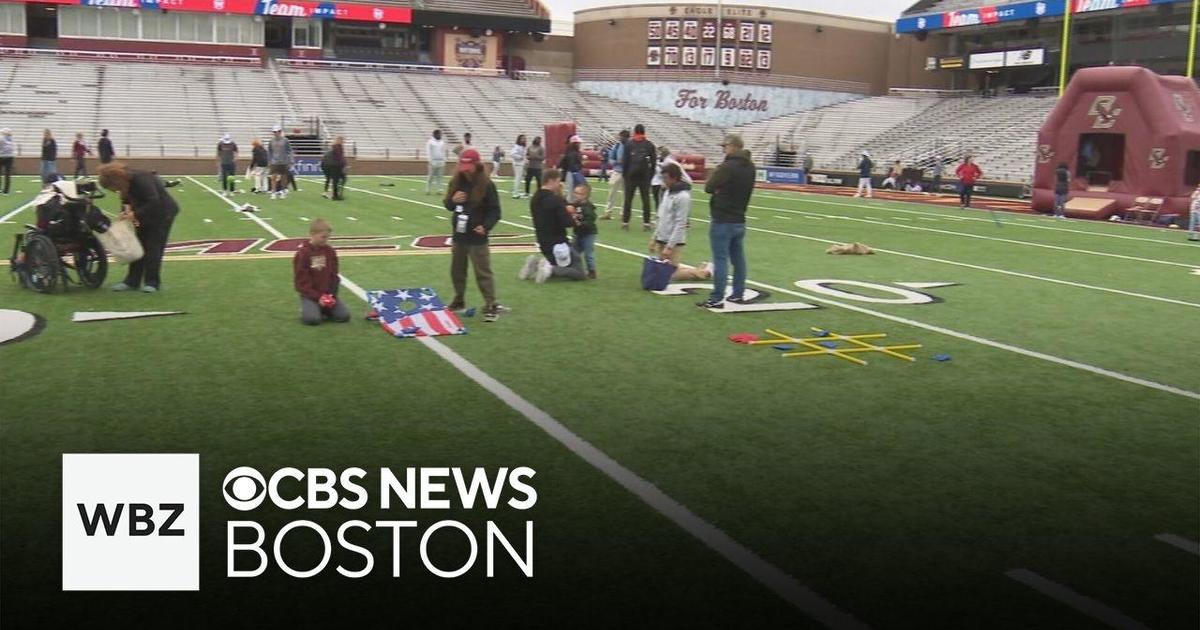Georgia
Minnesota Gophers football lands WR Tyler Williams from Georgia

Gophers football coach P.J. Fleck found his new quarterback in the transfer portal and added another potential go-to wide receiver as well with a commitment Tuesday from Georgia’s Tyler Williams.
The 6-3, 205-pound Williams redshirted the 2023 season after playing two games as a reserve for the Bulldogs. He was a consensus four-star and top-100 recruit coming out of Lakeland High School in Florida last year.
Williams, who has four years of eligibility remaining, will join one of the Big Ten’s top transfer classes. Fleck recently landed LSU defensive end and former Cooper standout Jaxon Howard and Clemson defensive end Adam Kissayi. New signal caller Max Brosmer also transferred from New Hampshire.
The Gophers added experience at receiver from the portal. Williams, Penn State transfer Cristian Driver and Emporia State transfer Jaylen Varner are expected to compete in the fall alongside seniors Daniel Jackson and Elijah Spencer and sophomore Le’Meke Brockington.

Georgia
Black men in Georgia were crucial to Biden’s 2020 victory. Can he keep the momentum in 2024?

James Butler, a Black, 42-year-old Atlanta-based Democrat, is planning on casting his ballot for President BIden in November — but he isn’t so enthusiastic this time around.
“I guess it’s the best we got,” he said about the 2024 election.
Butler’s not alone among Black voters in Georgia in his lack of enthusiasm in voting for Mr. Biden for a second time.
A CBS News poll in late February showed 76% of likely Black voters said they backed his reelection bid, down from 87% who voted for him in 2020. In 2020, Georgia was one of Mr. Biden’s closest victories, with fewer than 12,000 voters making the difference — and Black voters were a key part of Mr. Biden’s winning coalition there.
The Biden-Harris campaign appears to have taken notice. Vice President Kamala Harris on Monday kicked off a multistate tour in Atlanta, to talk about investments in Black communities and opportunities for minority families to build wealth under the Biden administration.
“We’re going to keep talking about the record and the work that is being done to advance the economic opportunity for young Black men across this country,” said Michael Tyler, a campaign spokesperson.
Organizers with the New Georgia Project, a Black voter advocacy group based in Atlanta, believe younger males have been particularly slow to return to Mr. Biden’s fold.
“Young Black men are more likely to say that they will vote for Trump,” said Ranada Robinson, a researcher for the New Georgia Project. “But, what I am most concerned about this year is that about 30% was undecided at the time of our poll.”
Robinson says misinformation is playing a large role in the waning interest of some Black men in Mr. Biden.
“Particularly online, there are some narratives that misplace the credit for some of the wins that we’ve seen in America,” she said. “There’s also some misplacement of blame. When you see certain Supreme Court decisions or some of the things that have long term impacts of past administrations, this administration is suffering the consequences of it.”
But other supporters of the president say they just aren’t excited about a 2020 rematch.
“I think my vote’s the same, but I’m less enthusiastic,” said Phillip Dunwood, 21, a student at Georgia State University. “It’s more like, ‘alright, let’s get it over with’.”
Meanwhile, Republicans are looking to peel Black men off Mr. Biden’s base, but they don’t have the resources they had in previous cycles. The RNC’s Black American Community Center in College Park, Georgia was one of many minority outreach centers that opened ahead of the 2022 midterms that are now shuttered.
“We can do a better job [at outreach],” said Azad Ahmadi, a member of the Georgia Black Republican Council (GABRC).
In lieu of national infrastructure, the party is relying on local ancillary groups like the GABRC to make inroads with the Black community. Darryl Wilson, another member, says the group is using mentorship as a way to court Black men into considering voting for Republicans in November.
“We’ve done Black conservative summits. We’ve done ‘barbershop-political forums.’ We bring government to the people in the local communities, wherever they can ask direct questions and get direct answers,” Wilson said.
The Black Conservative Federation (BCF), a network of African American GOP activists, rolled out its 2024 get out the vote policy plan in April titled “Black Men Matter.” The plan will see the group’s outreach organizers targeting Black men in six battleground states – Georgia, North Carolina, Wisconsin, Michigan, Florida and Pennsylvania – through grassroots outreach and programming.
But Democrats say Republicans are still far away from proving their investment in Black communities.
“To come around in an election period and suggest that they’re courting Black voters, except to say ‘Democrats aren’t doing enough’ or to say ‘you should stay out of this because this election isn’t worth getting involved in and Trump was a little bit better for you are the National Party was a little bit better for you,’ I just don’t buy it,” said Anre Washington, a Georgia voter. “It’s not ever been in my voting lifetime, a good faith effort on the part of the Republican Party.”
Georgia
Six squatters take over suburban Georgia home, then help themselves to vacationing neighbor’s car: cops

Police in Georgia rounded up a half dozen squatters who were bedding down in a $450,000 suburban home for months — after tracing a neighbor’s stolen car to their driveway.
The six intruders, who moved into the empty house at 4300 Caveat Court on Christmas Day, had long become a nuisance in the neighborhood, local residents told WANF-TV News.
“They buy these homes, and the people say they can afford them. They do the paperwork, and they’re supposed to buy it back from the company,” said Mel Keyton, president of the Hampton Oaks Homeowners Association. “They never buy it back.
“They leave the house vacant, squatters move in,” Keyton said. “We don’t know who these people are and what they’re doing.”
Keyton said the squatters broke into another empty home in the neighborhood while the owners were out of town and stole their car.
Cops caught up with the crew on Saturday and placed them in handcuffs.

“Not knowing who’s living amongst us, it really makes you feel uneasy and you just don’t feel safe,” association vice president Kendra Snorton told Fox affiliate WAGA-TV. “You don’t feel safe.
“The ringleader, we see him walking his dog all the time,” Snorton said. “He’s very courteous and polite when he interacts with the community.”
Saturday’s arrests come in the wake of Georgia Gov. Brian Kemp signing the Georgia Squatter Reform Act on April 24, which gives homeowners more authority to boot unwanted squatters.
“Hopefully it won’t get this bad,” Keyton told WAGA of the squatter dilemma. “Hopefully we won’t have to use this amount of police.”
Georgia
Why the “Russian law” is so dangerous for Georgia

There is an apparent attempt to distance Georgia from the geopolitical area which is supported by the vast majority of Georgians and put this Eastern European country in isolation under the claws of Russia. The stakes could not be higher.
May 5, 2024 –
Grigol Julukhidze
Mariam Gubievi
–
Hot Topics

Georgian women protest on Rustaveli Avenue in Tbilisi
Photo: k_samurkas/Shutterstock
The ongoing protests of Georgian society under the slogan “Yes, to Europe, no to Russian law” have become massive and large-scale. Opposition to the draft bill introduced by the ruling Georgian Dream party was first voiced in March 2023. As a result of last year’s huge demonstrations and public unrest, the ruling party withdrew the so-called foreign agent law. The issue was assumed to be closed. Yet, on April 3rd 2024, the executive secretary of the ruling party, Mamuka Mdinaradze, stated that the draft law would be reintroduced and explained last year’s failure as “poor communication” with the Georgian society – the name of the bill was changed to the “transparency of foreign influence” law.
The reaction of Georgia’s strategic partners – the United States, the United Kingdom and the European Union – was immediate. The general context was as follows: if Tbilisi adopts this law, it will damage Georgia’s European and Euro-Atlantic aspirations and cause devastating consequences for its freedom and democracy. As a result, sanctions could even be applied to billionaire Bidzina Ivanishvili, Georgian Dream MPs, and members of the government.
What the law is about?
Many people are still asking why this draft law is dangerous for Georgia. We will try to explain briefly and simply.
Article 1: Purpose and Scope of the Law
The purpose of the law is the transparency of financing, which is a banal manipulation. There is already legislation in Georgia which regulates the manner of disposal of grants, the transparency of spending and finances: the law “On Grants” and the law “On Lobbying Activities”. If the real goal of the Georgian Dream was transparency, it would have introduced minor changes to the above-mentioned laws.
Article 2: Agent of Foreign Influence
An “organization carrying out the interests of a foreign power” is defined as any media outlet or non-entrepreneurial legal entity that receives more than 20 per cent of its annual income from abroad. This does not matter what you do or where your funding comes from. (Of course, Russian “black money” reaches Georgia not through bank transfers but through cash exchanges, which make them untraceable). It is also manipulative to compare the Georgian bill with the American Foreign Agents Registration Act, or FARA. For example, the Russian propaganda television (RT) has an obligation to register in the US federal register because Russia is a hostile state for America, and the British one (BBC) does not as the UK is not hostile. There is no similar red line in Georgia. For example, a non-governmental organization which helps persons affected by blindness in Akhaltsikhe City and receives funding from Belgium is obliged to register as a “carrier of influence of a foreign country”.
Article 4: Registration of the Entity as an Agent of Foreign Influence
No self-respecting person wants to wear this dreaded label (“agent of foreign influence”). In cases of voluntary registration refusal, the draft law requires compulsory registration. This means that such non-governmental organizations must either cease to operate or continue to work under the label of “foreign agent”.
Article 8: Monitoring
A letter (even anonymous) submitted by a citizen to the ministry of Justice which contains a proper reference (denunciation) to a specific organization that might be carrying out the interests of a foreign power can lead to the definition of this entity as a foreign agent. The law gives the Ministry of Justice the authority, without any warrant or evidence, based on the “denunciation” of any person, “to obtain the necessary information, including personal data”.
As Ted Jonas analyzes in his article titled “US FARA vs. Georgian Foreign Agents Law: Three Major Differences”, the US FARA exempts from the definition of foreign agent all the following persons and organizations:
- Humanitarian aid organizations;
- Persons and organizations engaged in the following activities: Religious, Scholastic, Academic, Scientific, Fine Arts;
- Media organizations with foreign ownership whose policies are not directed by a foreign power;
- Allies of the United States
- Lawyers representing clients in legal proceedings.
The Georgian law does not exempt any of these persons or activities. Accordingly, under the Georgian law, unlike in the United States, the following are considered “foreign agents”:
- Georgian organizations which receive funding from allies of Georgia, like the US, the EU, Japan, and many other friendly countries;
- Humanitarian aid organizations who provide help to the 650,000 Georgians who live below the country’s poverty line;
- Georgian scientific, academic and artistic organizations which receive foreign funding;
- Georgian religious organizations which receive foreign funding;
- Media organizations that receive foreign funding, even if their policies are not directed by a foreign power;
- Non-profit entities with foreign funding representing clients in Georgian court and administrative proceedings.
Current situation
Following the first passage of the contentious “foreign influence” bill by parliament, which Brussels and Washington have warned will undermine Tbilisi’s long-standing European aspirations, tens of thousands of Georgians staged a protest. By a vote of 83 to 23, the measure passed its second reading in parliament on May 1st. The day before, police had forcibly dispersed a protest against it, assaulting and arresting numerous people while using tear gas, water cannons and rubber bullets. Ursula von der Leyen denounced the violence and urged Georgia to continue its path towards Europe.
Von der Leyen posted on X, saying, “I am following the situation in Georgia with great concern and condemn the violence on the streets of Tbilisi.”
I am following the situation in Georgia with great concern and condemn the violence on the streets of Tbilisi.
The Georgian people want a European future for their country.
Georgia is at a crossroads. It should stay the course on the road to Europe.
— Ursula von der Leyen (@vonderleyen) May 1, 2024
Later in the evening, hundreds of protestors attempted to block the side entrance to the legislature, and police responded by using water cannons, pepper spray and tear gas from inside the parliament building’s courtyard. In a statement, the parliament stated that the attack on the facility had “activated the red level of security due to the parliament building, which poses a threat to the lives and health” of people within. According to the interior ministry, police employed “special means provided by the law – pepper spray and water cannons – in order to restore law and order”.
According to Prime Minister Irakli Kobakhidze, western politicians and diplomats have been “slandering” the measure, which aims to “boost transparency of NGO’s foreign funding in accordance with European values”. He charged Georgian civic organizations with attempting to utilize western funds “at least twice in the last three years” to launch revolutions.
What’s at stake?
At a sizable pro-government gathering in Tbilisi on April 30th, billionaire founder of the ruling Georgian Dream party, Bidzina Ivanishvili, delivered a conspiracy theory-laden speech. In front of tens of thousands of spectators outside the parliament on Monday night, Ivanishvili made the suggestion that the Georgian government was effectively opposing a covert worldwide plot that was led by western nations. He denounced the “global party of war,” claiming it was to blame for the August 2008 war and Russia’s invasion of Ukraine. He also proposed that a “foreign agency” had chosen Georgia’s leaders between 2004 and 2012.
He went on to say that the reelected government would “be able to deliver a strict political and legal verdict to the collective National Movement” following the legislative elections in October. In recent years, Georgian Dream has labeled almost all of its opponents as enemies of the state, ranging from prominent democratic watchdog organizations to opposition MPs and political parties. The main task for Ivanishvili was to portray the West and NGOs as the main sources of instability. He repeated almost all the narratives from the Kremlin playbook. From Ivanishvili’s speech and the actions of the ruling party, we can assume that the Georgian Dream is going “all in” and no longer interested in the country’s European and Euro-Atlantic integration. Relations with the West will become more and more precarious while “cooperation” with Russia more intense.
The stakes could not be higher. There is an apparent attempt to distance Georgia from the geopolitical area which is supported by the vast majority of Georgians and put this Eastern European country in geopolitical isolation under the claws of Russia. The draft law has already left the margins of “controversial legislative initiative” and serves as a cursor for the country’s future. The final reading and passage of the law is scheduled for May 17th. If the law is fully adopted and implemented, the fate of Georgia will become closely attached to Russia. If not, Tbilisi can hope for a brighter future closer to the EU.
Grigol Julukhidze is the director of the Foreign Policy Council, a think tank in Tbilisi. He specializes in security studies and propaganda research. He is also a lecturer at Ilia State University.
Mariam Gubievi is a junior researcher at the Foreign Policy Council in Tbilisi.
-

 World1 week ago
World1 week agoEU Parliament leaders recall term's highs and lows at last sitting
-

 Politics1 week ago
Politics1 week agoGOP lawmakers demand major donors pull funding from Columbia over 'antisemitic incidents'
-

 World1 week ago
World1 week agoHamas ‘serious’ about captives’ release but not without Gaza ceasefire
-

 Tennessee1 week ago
Tennessee1 week agoHow to buy JC Latham’s Tennessee Titans jersey after 2024 NFL Draft selection
-

 News1 week ago
News1 week agoBoth sides prepare as Florida's six-week abortion ban is set to take effect Wednesday
-

 Politics1 week ago
Politics1 week agoColumbia University’s policy-making senate votes for resolution calling to investigate school’s leadership
-

 Michigan1 week ago
Michigan1 week agoMichigan State football adds DT Brandon Lane from Stephen F. Austin
-

 Politics7 days ago
Politics7 days agoHouse Republicans brace for spring legislative sprint with one less GOP vote
















